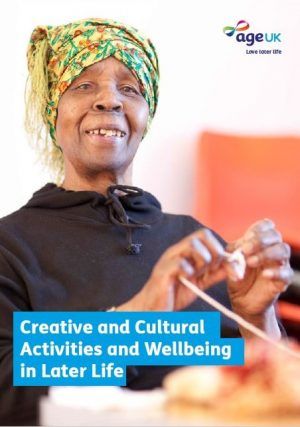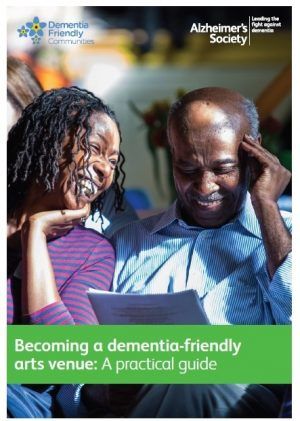More than two million people in England over the age of 75 live on their own, and more than a million older people say they go for over a month without speaking to a friend, neighbour or family member. These are startling figures.
The pain of loneliness is often felt by those suffering with dementia, and 800,000 people over the age of 65 are believed to have dementia in this country. In dementia awareness week, I want to highlight the benefit that arts and culture have in alleviating feelings of loneliness and isolation in the lives of older people and those suffering from dementia.
Cultural activities can improve the health and well-being of older people and can create a sense of community for those who are most isolated in our society. There are many examples of arts projects that are enabling older people to lead more varied and interesting lives.
[Dementia Oxfordshire’s] skilled team of Dementia Advisers and Dedicated Support Workers find that singing can provide a way for people with dementia… to express themselves and socialise with others in a fun and supportive group.”
Dementia Oxfordshire
Celebrating Age is one such project. Set up by Arts Council England, in partnership with the Baring Foundation, this fund encourages older people to engage with cultural experiences, helping them to improve their social skills, to drive confidence, and to make them feel part of a community. Importantly, it also asks arts organisations to partner up with other settings such as care homes and other community institutions such as libraries in order to reach older people in places they already know and go. City Arts in Nottingham has developed two programmes as part of Celebrating Age that bridge the gap between different generations. Older and younger people create literature, music, and dance together, and by doing so challenge the perceptions of aging and dementia.
We know that participation in arts and culture falls dramatically for individuals over the age of 75. This means that older people who are especially vulnerable to loneliness and social isolation are missing out on cultural activities that can counter those feelings. It is important we support organisations to develop high-quality programmes that place older people at the heart of their activity.
However, we also need better access to such opportunities. We must encourage more theatres, music venues, libraries, and art galleries across the country to make themselves more accessible to people who have dementia, along with their families, carers and friends.
“It takes your mind off your worries – I was in a world of my own.”
J, aged 70, participant at Mosaic Heritage session, Newport Library, January 2018
Many arts organisations are already doing brilliant work. The Southbank Centre has recently run a festival celebrating age and creativity, whilst ‘Every third minute’, a festival of theatre, dementia and hope, developed by the West Yorkshire Playhouse, explores the experience of living with dementia by involving people living with dementia as curators and performers. Such initiatives are essential if we are to provide inviting opportunities for older people across the country.
When organisations focus specifically on older people living with dementia, they can open doors and reduce barriers in ways that change lives by creating a sense of belonging. The Bluecoat, a contemporary arts centre in Liverpool, is doing pioneering work in this area, exploring how arts activities for people with dementia can be developed in the setting of care homes.
Age UK research has shown that having meaningful engagement with the world around you in later life, through social or creative activities, can improve a person’s sense of wellbeing by more than 20%. It is therefore essential that we should make a special effort to develop cultural projects and artistic venues which are tailored to older people. Arts and culture are vital threads in the fabric of living, and we must make sure that these threads are sustained through later life.
Sir Nick Serota, Chair of Arts Council England
Arts Council England has made a short film about arts and culture for older people here. More inspirational films from projects we fund are also available on our YouTube channel.
Quotes in this blog are taken from Age UK’s 2018 report on creative and cultural wellbeing in later life. Read the report here.

